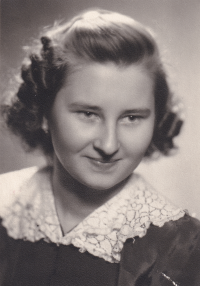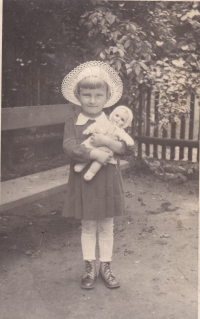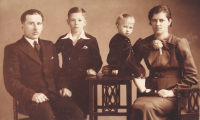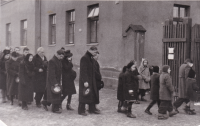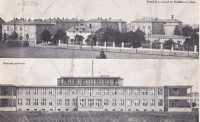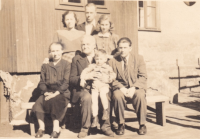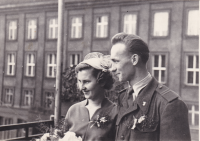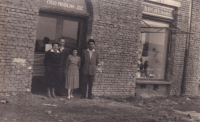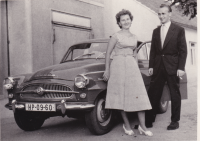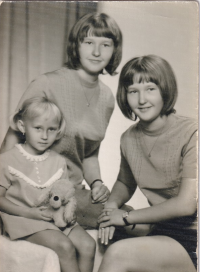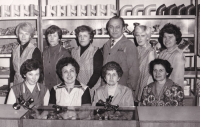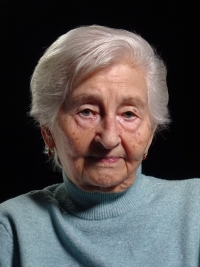He brought a basket of figs and started crying that there’s war in Czechoslovakia

Download image
Ludmila Kleinová, née Kaděrová, was born on the 19th of April in 1938 in the miners’ colony Na Františkové in Ostrava-Přívoz. Her father and other relatives worked in coal mines in and around Ostrava. During the German occupation, she witnessed parades of Nazi army corps and propaganda units in downtown Ostrava. In the later years of WWII, she would often hide in underground shelters during air raids. During the largest air raid of the Allies, on the 29th of August in 1944, she was in the Fifejdy hospital. After she survived the air raid, she witnessed transports of the wounded and then her father came on his bike to pick her. On the way home, she witnessed digging of a mass grave for unidentified air raid victims at the city cemetery. At the beginning of 1945, she saw looting of shops in Ostrava-Přívoz. Shortly after the liberation, a celebratory ceremony was held at the New City Hall in Moravská Ostrava where she sat on the knees of a high officer of the Red Army. Supposedly, the man was General Yeremenko. In December 1945, the family moved to the border-adjacent area where they spent several months living in the same house as its original German owners [who were to be expelled soon]. Shortly after her father died, the family moved back, this time to a miners’ colony Oderka in Ostrava-Přívoz. Here, she met her future husband, Ladislav Klein. Their union produced three children and in 1956, the family moved to Poruba, then still partly under construction. In August 1968, they were on holidays in Yugoslavia and after the invasion of Warsaw Pact armies to Czechoslovakia, they saw the support of local people for the occupied country. On their way back home, they spent a short time in a collection camp for Czechoslovaks who were both returning from abroad and leaving their occupied homeland. Ludmila Kleinová apprenticed as a gentlemen’s tailor and she spent all her working life in this profession. In 2021, she lived in Ostrava-Poruba.
